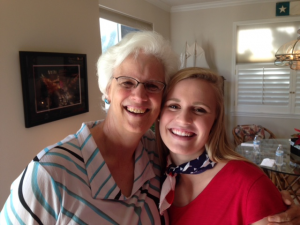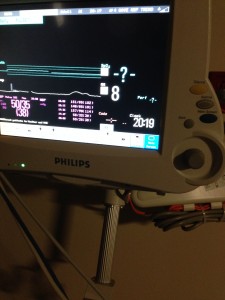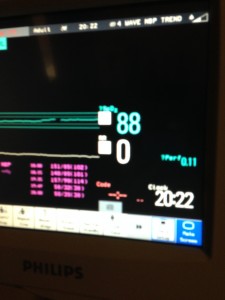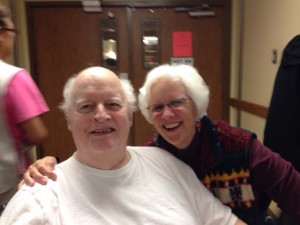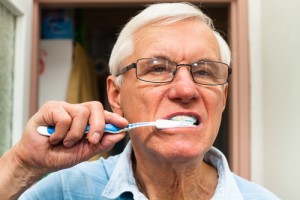When you need prayer, who do you count on to pray for you? If even one person comes to mind, consider yourself blessed beyond measure. For me, that person was my father. His spiritual legacy contained intercessory prayer at its core. He was my top prayer warrior.
Dad believed in the power of prayer and faithfully prayed for my brother Gene and me on a daily basis. He considered it his highest privilege and responsibility as a parent to cover us in prayer. Like most parents, Dad wanted to see his children healthy and happy. He wanted us to succeed in whatever career we pursued. But Dad’s prayer life focused on our spiritual well-being. He subscribed to 3 John 4: “I have no greater joy than to hear that my children are walking in the light.”
Can you imagine a parent praying over you on a DAILY basis? I realize many of us pray for our loved ones when certain events or circumstances arise. Dad certainly did that when Gene and I faced challenges. However, Dad deeply desired that Gene and I would know Christ as our Savior. Isn’t that what all Christian parents want?! Sure it is. We want our loved ones to know Jesus and enjoy a love relationship with Him for eternity. Dad wanted us to discover our purpose in God’s kingdom and live our lives serving Him.
He was so committed to praying for our salvation that he was willing to give up his life in exchange for our salvation. You read that right. He was willing to lay down his life in return for our salvation. How many of us are willing to offer our life in exchange for an answered prayer? I’ll be honest. I have never offered God my willingness to give up my life for anything or anyone. Dad knew it was a win-win for him, as it is for all Christians. He understood that “to be absent from the body is to be present with the Lord.” (2 Cor 5:8). How did I know that he was willing to die for me and Gene in exchange for our salvation?
Dad wrote an Intercessory Agreement with God on May 14, 1983. At that time he was 47 and divorced. He was living in Austin teaching at Crockett High School. I was out of college working my first job, and Gene was a senior at the University of Texas. I found the document in one of his files after he died. Here’s the opening of his Intercessory Agreement:
“I know and am very grateful that, as your child, I am not my own, that I am bought with a price. Because of that I understand that You are already absolutely free to take my life to Your glory at any moment, and that this agreement will in no way alter that. If Your desires require my life, then I happily lay it down without reference to anything but my eternal life in You, my Father. I will never cease praising You and thanking You for my redemption in Jesus Christ and the incredible heritage You have given me in Him. However, You evidently still allow human free will to operate to some extent in areas of the lives of Your children. There do appear to be some choices within a calling from You. In the hope that it is meaningful and that my earthly life is still at least partly mine to give, I am willing to lay down the rest of my earthly life if You count that of sufficient value that You are willing in exchange to do the things I have listed below:”
#1. The salvation of my children, Gene and Lee Ann. Dad listed seven more prayer requests that mattered to him the most, and I’m going to share them in time. Each request reveals his heart and how closely he walked with God.
Dad’s intercessory prayer ministry has shaped who I have become. I won’t fully appreciate his prayer covering over me until I get to heaven, but I know I miss it now! I believe that I am becoming the woman God created me to be in Christ Jesus because of his faithfulness to pray for me daily. His legacy lives in me, and I am committed to carrying it on. I have prayed daily for my family members for years. As I pray, I quote many Scripture passages that will help them grow spiritually, just as Dad did for me.
I now have the opportunity to make a powerful difference in the life of one precious young lady, my goddaughter, Serenity.
Serenity is a striking young lady with an adorable personality and a beautiful spirit within. She is finishing her freshman year at Texas Tech University. I have the privilege of being a godly influence in her life. I want to do for her exactly what Dad did for me, and that is to pray for her daily, focusing on her spiritual growth.
Dad committed to pray for us daily, but his intercession went well beyond his children! I look forward to sharing more of his legacy in the weeks to come.
If you are a parent, I hope Dad’s legacy inspires you to pray more deeply for your children if you aren’t doing that already. Children are a precious gift from the Lord, and we have the honor to care for them through daily prayer. Do you have a special prayer for your children that you don’t mind sharing with us?
Blessings,
Lee Ann

